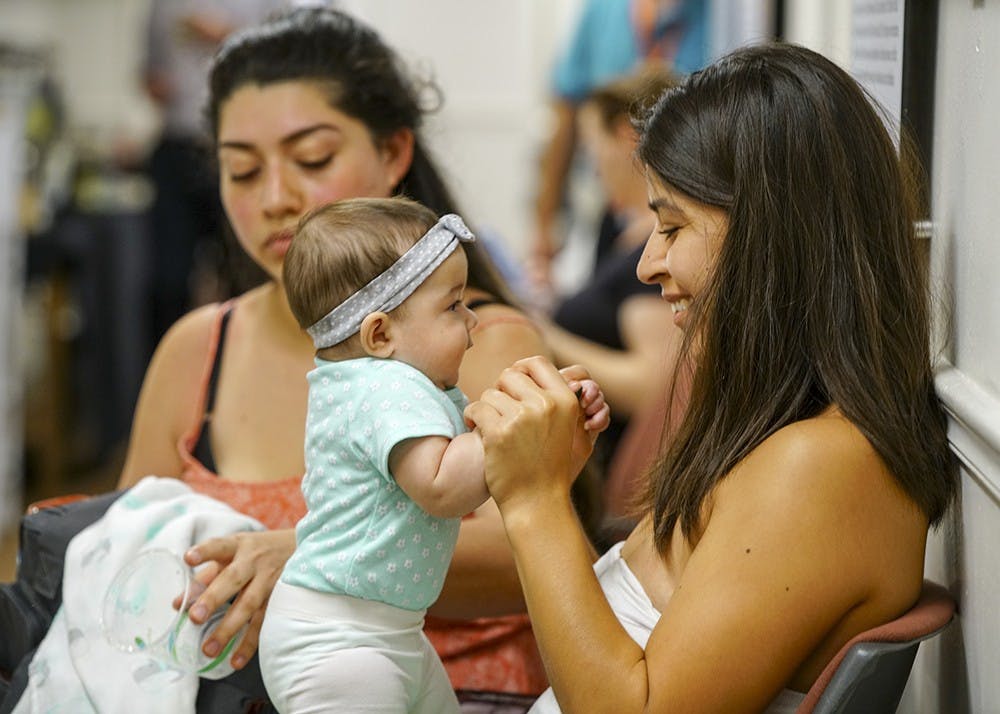It was a quote from the New York Times’ obituary of Alfred Kinsey that made Dr. William Yarber stop and think.
“Whatever may have been the reaction to his findings, the fact remains that he was first, last and always a scientist,” he said, pausing after he read this line of the late researcher's obituary on the wall of Morrison Hall. Yarber is a professor of applied health science and senior research fellow at the Kinsey Institute for Research in Sex, Gender and Reproduction,
Though the Kinsey Institute turned 70 in April of 2017, the celebration was September 16. A new historical exhibition, detailing the life of institute founder and namesake Kinsey through a series of panels as part of the celebration, opened to the public.
Yarber said Kinsey's attitude toward his research was one of his merits.
“Now that was a scientist. A scientist doesn’t judge. We have plenty of people in our society who do that," he said.
In addition to the exhibit, the institute organized a book signing of the recently published IU Press title, “The Kinsey Institute: The First Seventy Years,” as researchers in the next room presented their findings on topics ranging from the biological and social constructs of orgasms to the effect of childhood trauma on later relationships.
Yarber presented his team’s findings on condom use. The team, founded in 2000, has worked for almost two decades to improve condom usage and effectiveness, even leading to the development of a new male condom currently for sale.
The condom design, the O-Ring, has a glow-in-the dark ring on the underside of condom so it's less likely to be applied incorrectly.
“We’ve done more work on this than anyone in the world. It illustrates that the institute does things that have an impact on public life,” Yarber said.
The Kinsey Institute, established at IU in 1947, has been home to research in sex, sexuality and related topics since its founding, with the support of then-IU president Herman B Wells. Today, the institute conducts research and runs an online catalog of art and artifacts related to sex, sexuality, love and relationships.
"A lot of people don’t know that amongst limestone and cornfields, this Midwestern university was the cradle of academic sex research," Yarber said.
Karen Vanterpool, a Ph.D. student who works with the condom research team, came to IU for her doctorate in health behaviors because of the Kinsey Institute.
“Most programs maybe have one faculty member who does something related to sex, but here they run the whole gamut,” she said. “It’s something that impacts everyone, and it’s one of the areas that is most understudied.”
While the institute began with a focus on sex and sexuality, today the range of research interests has expanded. Under current director Dr. Sue Carter, the institute’s mission has expanded to emphasize well-being across an entire lifespan.
Another panel at the exhibit focused on the institute's modern development, with new research initiatives like evaluating birth experiences or improving physical and mental health outcomes for survivors of sexual violence.
Another new aspect of research for the Kinsey Institute is technology. Dr. Amanda Gesselman, a social psychologist at the Kinsey Institute and the Anita Aldrich Endowed Research Scientist, presented her work on sex in the digital age at the event.
One finding of Gesselman’s: more frequent emoji use in communications indicates a higher emotional intelligence and usually meant more dates and more sex for the user. However, using too many emojis was a turn off.
Gesselman said that this is because our online interactions mirror our in-person ones, and excessive emojis usage is the equivalent of being overemotional in person.
"We're incorporating tech more and more into our lives, and we are clearly adapting tech to fit the ways we are interacting with people," she said. "Even though we're in a digital age, we're not losing that human element."
Yarber said that the institute’s research is important today in restructuring attitudes in sexuality.
“We live in a culture which has a certain amount of erotiphobia – uncomfortableness with sexuality. We have very strong sexual scripts, and often they present a very negative perspective,” he said. “We know that knowledge frees people from guilt. We’re all sexual beings.”






